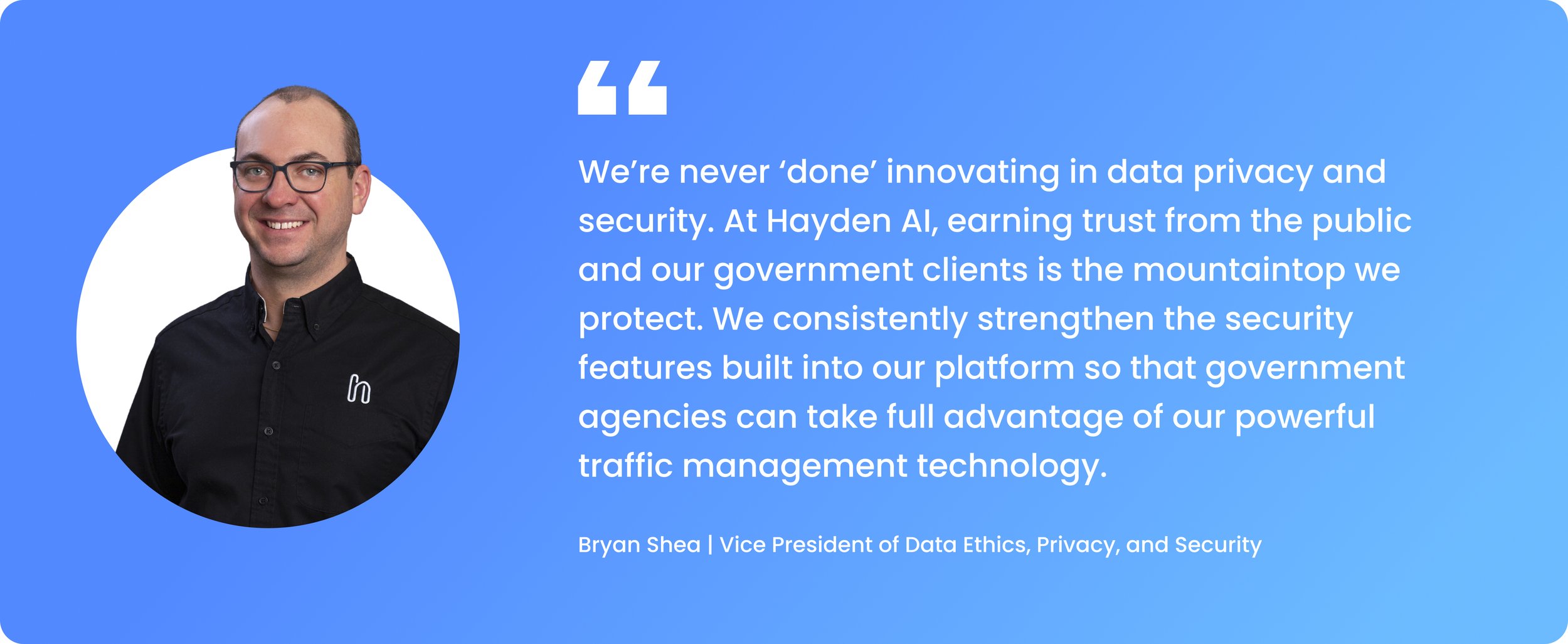
Why Edge Processing is Critical for Data Security
July 18, 2022
To issue citations for traffic violations, automated enforcement equipment must both capture and create an “evidence package” of each potential violation. These packages typically include an image of the violation occurring, an image of the license plate, and more often than not a short video. Understandably, this level of data collection raises privacy concerns.
Francis AI’s enforcement solutions use edge processing to collect and transmit only a tiny fraction of such sensitive data. With edge processing, the Francis AI platform identifies potential traffic violations, captures them, pre-processes them on the bus or other municipal vehicle and then uploads only the data necessary to issue a prosecutable violation.
Edge processing combined with artificial intelligence (AI) can unlock powerful and secure real-time insights for a host of different applications. Francis AI’s privacy-by-design approach ensures that governments can advance mobility and traffic management while vigorously protecting privacy and civil liberties.
How it works
Francis AI installs purpose-built hardware on municipal vehicles to conduct automated enforcement: an AI-powered camera, a context camera for video capture and an edge processor. First, the camera uses computer vision to monitor the street or roadway for potential violations – not unlike law enforcement.
Next, the edge processor analyzes this information on the vehicle in real-time, rather than transferring the data to a central server for processing. If no events are detected, that data is erased. Data is only retained and sent for validation and processing if a traffic violation is detected.
The benefits of edge processing
Unlike other automated enforcement systems that send all of their data to the cloud for review, Francis AI’s systems only send potential violations packages. Only events that meet the requirements of the agency or issuing authority are transmitted from the municipal vehicle.
With fewer events being transferred, there are fewer opportunities for data to be hacked, leaked, or compromised. This also makes processing more efficient by allowing governments to significantly minimize the amount of data that is collected, shared, and stored. For the data that is transmitted, Francis AI maintains rigorous security standards that utilize both dedicated VPN tied to FIPS 140-approved strong encryption, minimizing the risk of unauthorized access.
Additionally, the Francis AI platform only retains information about the vehicle and the immediate surroundings necessary to confirm the traffic violation and its location. The platform does not use any facial recognition software or record any information about pedestrians.


.jpg)
.png)
.jpg)